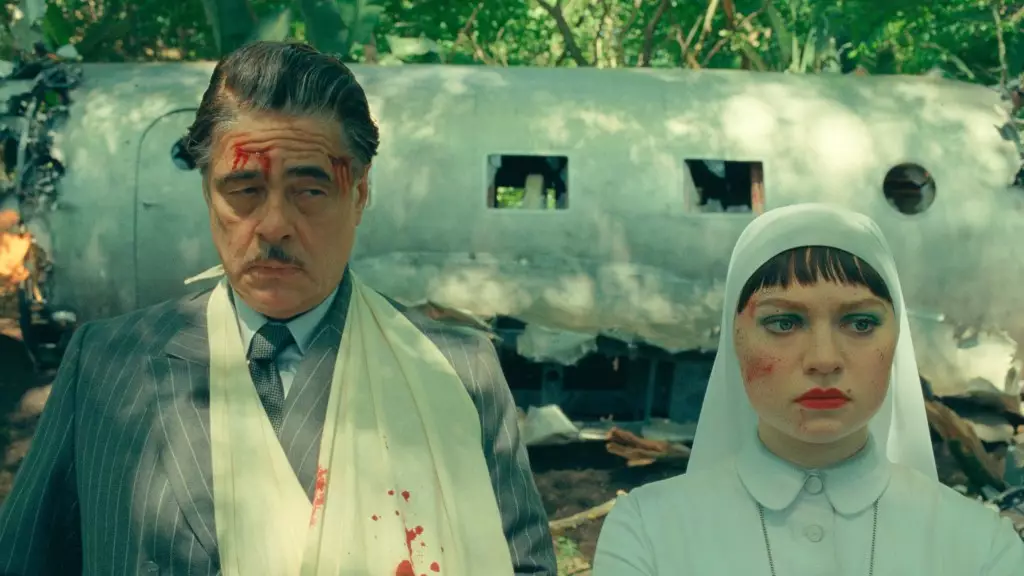In a world where everyday experiences often take unexpected turns, Benicio del Toro’s recent encounter with TSA while traveling to promote Wes Anderson’s latest film serves as a reminder that fame does not exempt one from routine procedures. It is fascinating how even the most celebrated public figures can find themselves caught in mundane situations, highlighting the unpredictable nature of life, even for an Oscar-winning actor.
The Peculiarity of Screenplays
Del Toro’s story, shared on “Late Night with Seth Meyers,” unveils an interesting quirk about the nature of screenplays. While most people might casually carry books or mundane paperwork during flights, a script, especially one with provocative scenes, brings an entirely different set of expectations. Del Toro’s script included alarming headings such as “Interior Airplane: Bomb,” triggering immediate security concerns. This situation reflects not just on the contents of the script, but on society’s heightened sensitivity to any mention of aviation-related threats in our post-9/11 world.
Such sensitivity, while necessary for security, can often lead to absurd situations—where creativity and art are halted at the airport security checkpoints. It’s amusing to think how a cinematic narrative for entertainment might clash with the unforgiving protocols of airline security. In a way, these experiences emphasize how art can sometimes provoke unintended anxieties.
The Role of Professional Courtesy
Del Toro’s reaction to the situation also speaks volumes about the nature of respect and professionalism. He didn’t lash out at the TSA agent for their due diligence but instead chose to acknowledge their vigilance. His ability to obey protocol while recognizing the absurdity of his circumstance shows a level of maturity and understanding that is often absent in public discourse today. This hints at a larger societal issue where individuals often overlook the human aspect of service jobs in favor of indignation.
By appreciating the TSA’s attentiveness, Del Toro implicitly invites a more nuanced view of the challenges faced by personnel operating under stringent rules. His experience sheds light on the importance of maintaining a sense of humor amidst rigidity—a refreshing take in an era where frustrations quickly surface without understanding the context.
A Candid Reflection on Fame and Privacy
Moreover, Del Toro’s ordeal open the discussion about the fine line between celebrity and privacy. The fact that he was recognized by the supervisor points to the constant scrutiny that comes with stardom, even in the most mundane settings. For actors and public figures, the everyday can turn into a spectacle, forcefully reminding them of their public persona even when engaged in private matters.
This incident highlights the cultural preoccupation with celebrity—while they navigate the complexities of fame, they are inadvertently caught in scenarios that expose the quirks of modern life. It’s a profound irony that a benign act of traveling can escalate into a security interrogation, creating a narrative that, though comedic, also reflects the realities of living in a society that balances freedom with vigilance.
In essence, Benicio del Toro’s TSA tale not only entertains—it also provokes reflection on the nature of fame, privacy, and the absurdities that life can present when art meets life.

